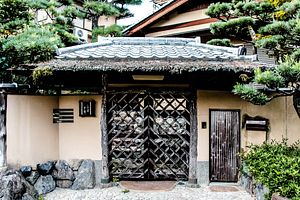A government scheme introduced in 2017 aimed at making vacant homes available to rent to low income and single seniors are struggling to attract homeowners to register properties to a database. Following the launch of a modest target of 175,000 affordable rental dwellings by 2020, the initiative is looking bleak with the total number of houses registered standing at just 10,723 as of last week.
According to government data, Japan’s shrinking population has left a whopping 8.47 million unoccupied homes across the country — the figure of vacant homes rising to 260,000 in the past five years. Data from 2013 showed from the 8.2 million empty dwellings, 1.85 million of them are earthquake resistant and located within close access to a train station. Despite the abundance of unoccupied properties with suitable living conditions, elderly and low-income groups regularly face rejection when applying for rental leases.
The revised “Housing Safety Net System” was designed to attract owners in registering homes as prospective rental properties through the help of a subsidy to cover the cost of renovations. But the package failed to attract property owners with many believing the program’s burdens outweigh its benefits. Despite the subsidy, dismal registration figures stem from the lack of confidence lending to people with a higher risk of rent defaults and passing away on the property.
Compared to Western countries where public housing includes subsidized rents, in Japan, public housing is not included within the social security system. Ultimately poverty among elderly residents is a serious problem with single seniors on the rise. Although homeownership among the elderly is quite high compared to the generation before, the rental burden is high for those living on a pension. The basic annual pension for singles is lower than the minimum cost of living recognized under Japan’s “livelihood protection” system.
As a way to get more property owners and large real estate companies on board, the Ministry of Land, Infrastructure, Transport, and Tourism simplified the registration hurdles and requested local governments to eliminate registration fees. As of March last year, guarantors are not needed for moving into public housing — a significant factor that has kept low-income groups from accessing affordable housing. Meanwhile, local prefectures have begun to refer owners to social welfare organizations known as “residence support corporations” and are combining subsidized rental properties with welfare services.
Since July the Tokyo metropolitan government has offered to shield half the costs involved in monitoring services for elderly people living in registered homes. The new initiative hopes to reduce the burden on landlords by confirming the safety of tenants and compensating in the event of a “lonely death.” It’s the first time a local government has rolled out a monitoring service for subsidized private housing tenants.
As Japan’s total population is projected to fall 2 percent per year after 2030, instead of local municipalities across Japan providing public housing, public housing will be pulled from the private sector of vacant housing stock on a needs basis.
In an effort to deal with the rising number of vacant homes with livable conditions, in 2015 a law was passed to allow municipal governments to manage vacant houses if owners are unable to take care of the property due to financial or personal reasons. Unoccupied and rundown old homes pose a danger to the community and traditional wooden foundations run the risk collapse from earthquakes. But, in reality, chasing down owners of vacant homes or the families inheriting the property is almost impossible when costs for demolition need to be covered by family members.

































